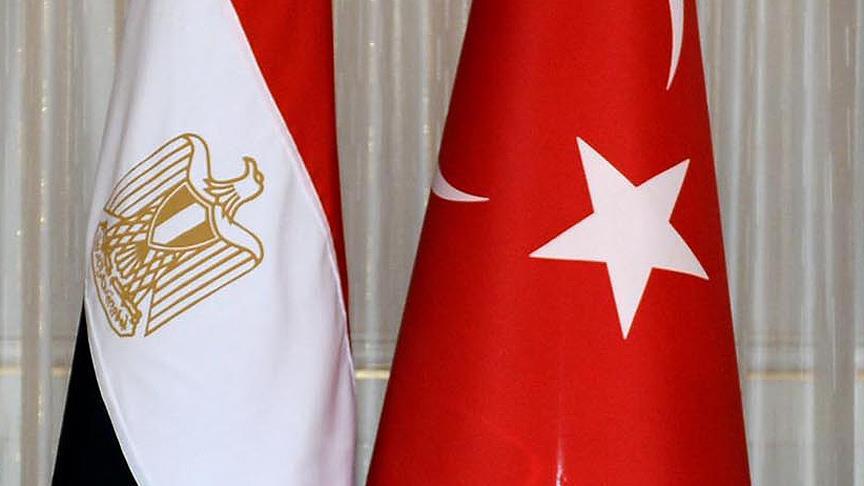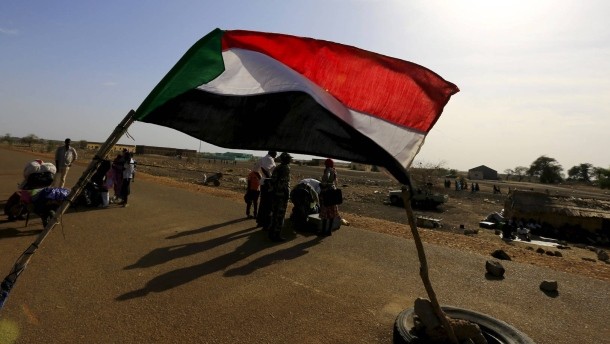Turkish intervention in Libya and its impact on Egyptian national security

Prepared by the researcher – Dina soliman kmal lasheen – Faculty of economic and political science Cairo university
Source – Democratic Arab Center
In fact Egypt is always at the heart of the dangers it is always in the face of the cannon exposed to many threats as we have already indicated, we have first addressed some of the threats that emanate from within the state, but now we address the external threats from outside the borders of the state – and how it affects the security of the state and its stability, which ravages it and endangers it, and even limits its growth rate, and constitutes an obstacle to its progress and the most important
Those that come from the border neighborhood of the state, Egypt has suffered a lot because of that juxtaposition, where the Egyptian border with neighboring countries is witnessing developments carrying a lot of risks and challenges that escalate from time to time threatening the Egyptian national security, which requires the Egyptian state to focus its attention on these developments and develop plans to avoid escalating threat. The Egyptian border with neighboring countries is witnessing many developments that carry with it many risks and challenges that threaten the egyptian national security, the seriousness of the threats of neighboring countries is that they interfere with other complex sources of threat that put pressure on Egyptian national security and it is noticeable that in all countries of the world the border is secured through the joint duties of the security services on both sides, but the problem in Egypt is that its armed forces are solely responsible for securing the borders where the other side does not play its role security and Here the geographical proximity has caused many threats, it is known that it limits Egypt from the west “The state of Libya, It is bordered by the south and the “Sudan”, as it is bordered from the north-east by the “Gaza Strip and Israel”, and Egypt entered with them in many clashes because of this geographical proximity, but due to the recent situation in Libya, which represents the modern hour, we will focus mainly on the geographical neighborhood (of Egypt and Libya) .
The shape of the relationship between Egypt and Libya
Libya is gaining great interest from the Egyptian side, where their national security is indivisible, as well as their historical relations, common borders, as well as the Egyptian-Libyan tribes scattered in both countries, and as a result of neighborly relations, sahra and higher national interests, Egypt is very interested in the situation in Libya. Egypt was one of the first countries to deal with Libya officially after its independence in the early 1950s, and former Libyan President Colonel Gaddafi sought unity with the Egyptian state by signing the Tripoli Charter in December 1969, which included the so-called National Front. Arab, and later Joined Syria and the Union of Arab Republics between Egypt, Libya and Syria was announced on April 17, 1971, and Libya helped Egypt in the War of October 1973, where it made a deal «Mirage» aircraft with France, and the extraction of Libyan passports For Egyptian pilots for training in France , and When Egypt faced the problem of buying tanks «T62» Libya pushed them, as it sent two squadrons of aircraft, one led by Egyptians and others Libyans, but this relationship will not go along the same line, relations went through a period of tension during the rule of the late President Anwar Sadat, until relations between Egypt and Libya returned in 1989 during the Arab Summit In Morocco, the cancellation of visas for citizens of the two countries and the signing of ten agreements regulating all cooperation between the two countries in 1991 and with the onset of the Crisis (Lockerbie), and the American blockade, which became international by a UNITED Nations resolution in 1992, Egypt made efforts to support Libya in support of its contacts with the outside world. Egypt also showed great interest in the situation in Libya in the post-Gaddafi era (after the Revolution of February 17, 2011), where Egypt hosted several meetings that brought together political forces and Libyan representatives, as part of attempts to find a solution to the crisis in the hands of libyans themselves, as well as Egypt’s participation in international conferences on Libya both regionally and internationally, most recently the Palermo conference in southern Italy (12/13 November 2018) in which President Abdel Fattah el-Sisi participated. . As a result of this relationship and this juxtaposition, Egypt had to take a big interest in all the events that exist in Libya as one people and one nation, so Egypt was one of the countries most interested in the issue of Turkish intervention in Libya, since what affects Libya would affect Egypt, its security and stability, and from here we will address the turkish interference in its affairs and the implications for The Egyptian national security.
First of all, it must be noted that Libya represents the gate of Western Egypt, so Egypt has focused its attention on the prevailing situation, libya has recently been subjected to a major crisis that would threaten the national security and internal stability of both countries, namely the intervention of the Turkish military in Libya, where Turkey is striving to penetrate the Libyan arena politically and militarily, due to the increase in the size of Turkish ambitions in Libya and the huge returns that will return to it, so the turkish objectives of intervention in Libya, including:
- Turkey is striving, through different paths, to make the most of the Libyan war, to come up with a package of gains that will enable it to map the oil-rich country in a way that serves its interests.
2- Turkey’s desire to achieve its goals in the eastern Mediterranean region, having found itself isolated because of the egyptian role in this region, where Egypt has been able since 2015 to isolate Turkey from any activities or agreements related to gas exploration, by launching the Forum for The Eastern Mediterranean Gas, which made it ( Egypt is already acquiring the position that Turkey was seeking to become the main player in the Eastern Mediterranean gas file, and the gateway to its operations and export to Europe, which prompted it to take many measures such as the launch of gas exploration in the eastern and southern regions of the island of Cyprus, which were criticized by all countries concerned with the gas file in this region.
- Trying to resolve a dilemma that is beginning to emerge in the areas occupied by Turkey in the north and north-east of Syria, the Syrian Arab Army seems determined to complete the battle of Idlib, which means that in practice, sooner or later, it will flow Hundreds of fighters belonging to the Armed Factions supported by Ankara in Syria, which will create a major problem and burden on the Turkish interior, found in sending them to Libya a solution through which they appear as a strong supporter of the Government of Tripoli, and in the same Indeed, Turkey has already begun to follow the path of recruiting extremist elements from the factions that were fighting the Syrian Arab Army, and transporting them to Libya via civilian flights. A series of meetings in Tripoli with officers of the prime of the al-Wefaq government, followed by another series of meetings between Turkish intelligence officers and leaders of the most prominent pro-Turkish armed factions in the north of Syria, and it was agreed during these meetings that Turkey would be sent to Libya numbers of fighters of the so-called National Army, and other reasons that seek to achieve it behind its intervention in Libya to achieve a package of interests to increase its influence in the region, and had the opportunity after the approval of the Turkish Parliament Thursday (January 2, 2020) on the memorandum of President Recep Tayyip Erdogan allowing the dispatch of Military forces to Libya in support of the Government of National Accord in Tripoli, which is under attack from forces loyal to Field Marshal Khalifa Haftar, which could deepen its involvement in the conflict in Libya and ankara has already provided the internationally recognized Government of Accord in the Libyan capital Tripoli, armored vehicles and has ignited several drones in favor of the Libyan government. This is after the numerous attacks launched by the Libyan National Army forces led by Khalifa Haftar since last April, Turkey claimed that its intervention would work to settle things there, but in fact it deepened and ignited the fire between the government of al-Wefaq and the forces of Caliph Haftar, they are basically seeking To help an ally need edited in the context of supporting its claims for gas exploration in the eastern Mediterranean, especially after it asked for military support “land, sea and air” in order to put an end to the attack of Field Marshal Khalifa Haftar, this is the official answer and the argument given by Ankara when asked about its goal of military activity in North Africa, Its main support is directed at militias in Libya, where Ankara/Turkish companies are working to hand over weapons to the “Dawn of Libya” coalition. That It is a conglomerate of militias that are full of extremism, this intervention in fact has many repercussions that will threaten the security and stability of many neighboring countries, especially Egypt, because it surrounds it from the west as well as Europe, libya seems more dangerous for Europeans than many of the inflamed regions of the Middle East, due to its geographical proximity to the old continent. Egypt, the Arab League and most European countries have condemned the intervention, and the Arab League has considered this move to fuel the conflict in Libya. She said that this military escalation will exacerbate the crisis situation there and threaten the security and stability of Libya’s neighbours and the region as a whole, including the Mediterranean. She pointed out that the political settlement remains the only solution for the return of security and stability to Libya, as warned the Egyptian Foreign Ministry against any Turkish military intervention in Libya, and said that such intervention will negatively affect the stability of the Mediterranean region, and that Turkey will take full responsibility, as it saw that The Turkish parliament passed the memorandum submitted by Erdogan authorizing the dispatch of Turkish troops to Libya, “based on the false memorandum of understanding signed between Al-Sarraj and the Turkish government” signed 27 November 2019, where the Interior Minister announced The Government of Reconciliation, “Fathi Bash Agha”, signed a security agreement between his government and the Turkish government. Bash Agha explained in press statements that the agreement is about fighting terrorism and illegal immigration, but it is in fact an investigation of their interests, but indirectly received Turkish President Recep Erdogan Fayez Al-Sarraj. They signed two memorandums of understanding: the first is a military security agreement to achieve security and military cooperation between the two countries, and the second on sovereignty over maritime areas. The memorandums of understanding are aimed at strengthening relations and cooperation between the two sides, according to the Turkish statement. But it is in fact a new conspiracy that will plunge Libya into chaos and allow the establishment of Turkish military bases in Libya,” he said
. As a result of this agreement was not legitimate, Egypt was one of the first countries to object to it. The agreement, signed in Skhirat, Morocco, under the auspices of the United Nations on December 17, 2015, to end libya’s civil war since 2014, which has included 67 articles and 9 chapters, the most important of which is the agreement, which includes the powers of the prime minister to the Presidency of the Government of National Accord, which is headed by the prime minister himself, and the beginning of a new transition. 18 months, and if the government does not finish its functions, the extension of the period of an additional 6 months and the agreement also provided for the formation of the Supreme Council of state of the members of the new General National Congress and the maintenance of the Libyan Parliament elected in June 2014), and that this would affect the Egyptian national security, as the Turkish presence in Libya represents an explicit threat and targeting Egypt and its national security, Ankara achieves a set of political, security and economic objectives if it manages to control Libya. If it succeeds in controlling Libya, it will gain added strength to its negotiating position in the two fields, Iraq and Syria, in front of international and regional powers, and can achieve a political victory that strengthens its internal position in the light of internal Turkish political confusion that threatens its entire project and enables it to form a base for radical Islamist fighters that it can use to revive the project of political Islam, which is expired, and that base will serve as a starting point for threatening the Libyan neighbors, particularly Egypt to press them and impose a fait accompli on them. the world, in addition to strengthening its strategic capability to threaten the Eastern Mediterranean Gas Forum and achieve geostrategic control. Turkey wants to be on its western borders and in front of the territorial waters and approach its gas fields in the Mediterranean, as it has caused many terrorist operations in Egypt, most of which came from the western border to add this great strategic threat to Egypt serious repercussions in the region It may not stop there, the main goal of the Turks is to disrupt the Egyptian national security and not to allow a regional balance, as it aims to expand its influence and achieve its interests, Turkey’s control over Libya would lead to neutralizing the Egyptian influence and besieging it and undermining the security of The Egyptians by supporting the Movement of the Brotherhood and controlling the Western borders and setting it on fire, so Egypt, after signing this agreement, sought to obtain an Arab resolution rejecting foreign interventions in Libya, so it sought with all its energy to nullify the agreement and make it He is nothing because of his serious impact on Egypt. Therefore, Egypt is the one who pays the price, because of this juxtaposition, Egypt has become in the face of the cannon, the Turkish intervention in Libya would represent a major threat to Egypt’s national security. “,




